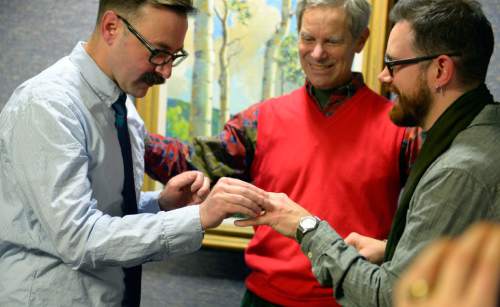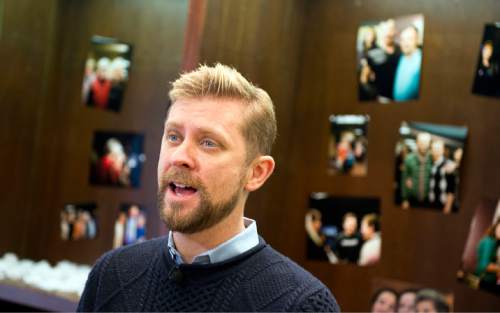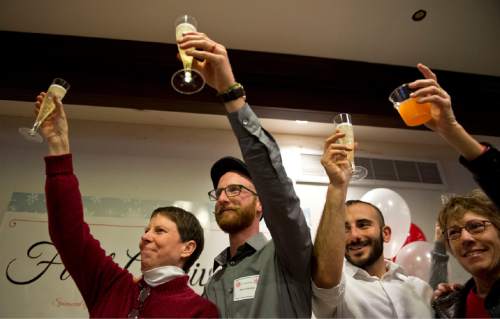This is an archived article that was published on sltrib.com in 2015, and information in the article may be outdated. It is provided only for personal research purposes and may not be reprinted.
A new national survey ranks Salt Lake City's population of lesbian, gay, bisexual and transgender adults as seventh highest among the top 50 U.S. metropolitan areas — a finding that may surprise only those who live outside the Beehive State.
"We've long known that Salt Lake City has a high LGBT population," Troy Williams, executive director of Equality Utah, said. "But when I meet people elsewhere and they find out I'm from Salt Lake City, they are always so concerned and say, 'Your job must be so hard.'
"They don't realize what a gay-affirming and gay-friendly city Salt Lake has become."
The survey, released Friday by the national pollster Gallup, found that 4.7 percent of Salt Lake City residents self-identify as LGBT.
The San Francisco metropolitan area, long the hub of gay rights activism, topped the rankings at 6.2 percent. Also ahead of Utah in the top 10 were Portland, Ore., Austin, Texas, New Orleans and Boston.
Birmingham, Ala., was ranked the lowest at 2.6 percent, just behind Memphis, Tenn., and Pittsburgh.
The rankings are based on surveys of 374,325 adults age 18 or older across the 50 largest metropolitan areas who were asked: "Do you, personally, identify as lesbian, gay, bisexual or transgender?"
Gallup's surveys were conducted between June 2012 and December 2014. All but two of the metro areas surveyed a minimum of 3,000 individuals and none had a margin of error of greater than plus or minus 1 percent, according to a description of the survey on Gallup's website.
A previous Gallup survey found 3.6 percent of the overall U.S. population identifies as LGBT.
Gallup's Utah findings shouldn't be a surprise, despite the state's conservative politics and dominant religious culture, said Gary Gates, research director at the Williams Institute, a University of California, Los Angeles, think tank that studies LGBT issues.
"You see the biggest changes in places that are often the most conservative, like Salt Lake City," Gates said. "That's in part because those are the places that have the biggest room for growth."
In a companion study also released Friday, Gates examined the degree of change for LGBT individuals by comparing Gallup survey findings from 47 of the 50 metro areas with 1990 census data on same-sex couples per 1,000 households.
In some instances, Gates found not much change: San Francisco, Austin and Seattle, for example, landed in the top five on both rankings.
Salt Lake City, however, was 39th for its proportion of same-sex couples in 1990 and now ranks seventh in the proportion of LGBT adults today.
That likely says more about the growing acceptance of LGBT people and their visibility in the community, Gates said, than it does about LGBT location preferences.
These days, he notes, LGBT life in Salt Lake City isn't as different from LGBT life in San Francisco as it once was.
"I just don't think that it's a coincidence," Gates said, "that you see this fairly substantial change and Utah is the first state since 2007 to pass a comprehensive anti-discrimination law."
Last week, after weeks of historic negotiations with both LGBT community leaders and senior leaders of The Church of Jesus Christ of Latter-day Saints, Utah lawmakers passed a bill that would marry statewide nondiscrimination protections in housing and employment for LGBT persons with safeguards for religious liberty.
"That law just couldn't have been passed," Gates said, "if you didn't have an LGBT community willing to be visible and talk about their issues."







